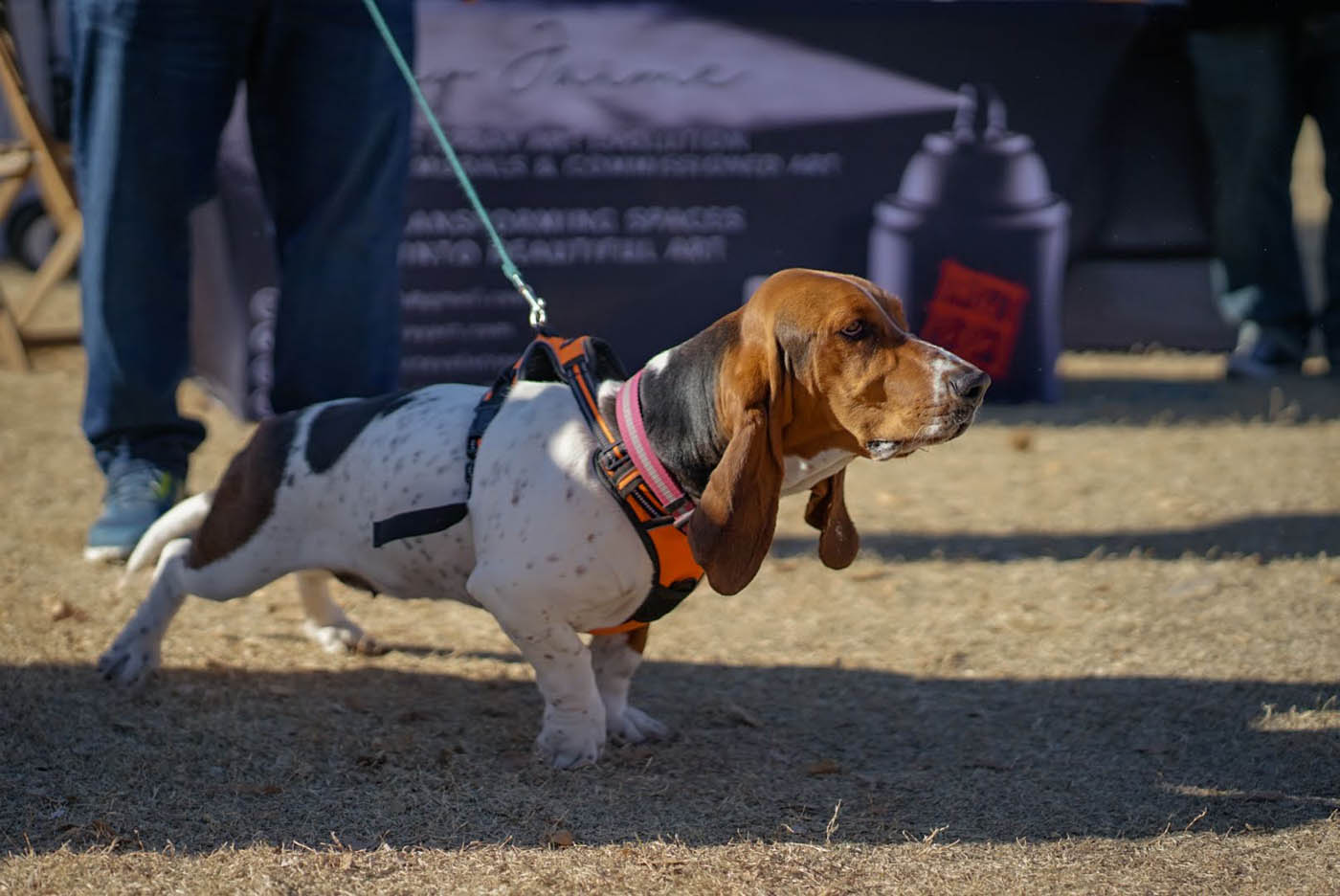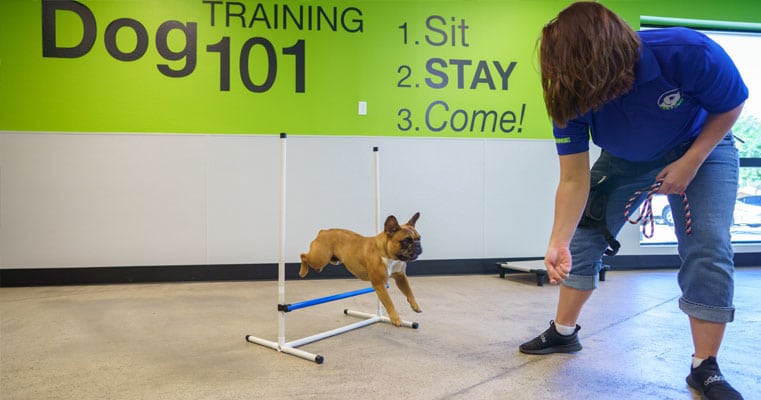Specialist Insights on Dog Training Charlotte NC: Transform Your Dog Today
Specialist Insights on Dog Training Charlotte NC: Transform Your Dog Today
Blog Article
Unlock Your Pet's Prospective: Proven Pet Dog Training Methods for Success
Reliable canine training is a nuanced procedure that hinges on recognizing canine habits and using clinically backed strategies. By integrating favorable reinforcement, developing clear commands, and prioritizing socializing, pet dog owners can cultivate an effective connection with their family pets.
Comprehending Pet Habits
Recognizing canine actions is vital for reliable training and fostering a favorable relationship in between dogs and their owners. A thorough grasp of canine body language, articulations, and social communications is important for identifying their requirements and feelings. Pet dogs connect mainly with non-verbal cues; for example, a wagging tail may suggest excitement, while pinned ears can signify fear or entry.

Additionally, ecological factors play a substantial function in forming a pet's habits. Changes in regular, brand-new surroundings, or the presence of unknown people can cause stress or anxiousness in pets. Identifying these triggers allows owners to reduce unfavorable reactions and establish suitable training strategies.
Inevitably, a deep understanding of dog behavior lays the foundation for successful training methods, enhancing both habits and the total bond between the pet dog and its proprietor. dog training charlotte. This understanding is indispensable for fostering a well-adjusted, happy canine friend
Favorable Support Strategies
Reliable training depends heavily on positive reinforcement methods, which have been revealed to yield significant results in forming desired behaviors in pets. This technique includes awarding a pet dog for showing certain actions, consequently increasing the likelihood that these habits will be repeated. Incentives can take different forms, including deals with, appreciation, playthings, or playtime, depending upon what motivates the individual pet dog.

It is important to gradually eliminate incentives as the dog learns the behavior, transitioning to recurring support. This approach keeps the habits with time while avoiding reliance on constant incentives. By concentrating on positive support, trainers can grow a trusting connection with their dogs, advertising a healthy and participating training environment that boosts overall obedience and efficiency.
Developing Consistent Commands
A basic aspect of effective dog training is the establishment of regular commands. Consistency in commands is vital for effective communication in between the trainer and the pet dog. When commands are consistent, pets learn to connect details words with desired habits, which increases the training process and enhances understanding.
To develop regular commands, it is important that all member dog training near me of the family make use of the same terminology and motions. If one person utilizes "rest" while an additional claims "sit down," it can create confusion for the canine. Select clear, unique words for commands and make sure every person associated with the dog's training abides by these choices.
Furthermore, repeating is essential. Strengthen commands through regular technique, making certain that the pet dog receives sufficient possibilities to react properly. When a dog effectively adheres to a command, prompt positive support should comply with. This can be in the form of deals with, appreciation, or playtime, strengthening the connection between the command and the action.
Lastly, hold your horses. Developing constant commands takes time and initiative. With devotion and clearness, you will aid your pet dog establish a strong understanding of assumptions, eventually leading to a mannerly buddy.
Socialization and Direct Exposure
Interacting socially a canine is essential for cultivating a confident and well-adjusted friend. This process entails subjecting your dog to a range of settings, individuals, and other pets to develop their social abilities and adaptability. Early socializing, ideally in between the ages of 3 to fourteen weeks, is vital, as it prepares for a pet's future actions.
During socializing, aim to give positive experiences in various setups, such as parks, hectic roads, and homes with various other family pets. Present your canine to numerous stimuli, including audios, sights, and smells, ensuring that each encounter is fulfilling. This exposure assists minimize worry and stress and anxiety, leading the way for a much more resistant canine.
Engaging in controlled group play sessions with other canines can likewise improve social skills, instructing your animal proper interactions and limits. Prioritizing socialization will considerably contribute to your dog's overall joy and actions throughout their life.
Conquering Common Educating Difficulties

One more constant issue is diversion. Pets may have a hard time to concentrate in strange or busy settings. Progressively desensitize your dog to interruptions by beginning training in a silent environment and slowly presenting even more stimuli as they become efficient (Dog training). Positive reinforcement methods, such as deals with and appreciation, can maintain motivation and focus.
Additionally, behavioral concerns like leaping or extreme barking can end up being irritating. Address these by instructing alternative actions, such as sitting calmly when greeting guests. Consistency and persistence are crucial; enhance wanted behaviors constantly and stay clear of abuse, which can bring about confusion.
Last but not least, identify that each dog is unique, and training timelines may differ. Dressmaker your approach to your pet dog's private needs, and seek professional assistance if necessary. With determination and the best strategies, conquering these obstacles can lead to a trained, pleased canine buddy.
Verdict
To conclude, unlocking a canine's possible requires an extensive technique that integrates an understanding of canine habits, the application of positive support techniques, and the facility of regular commands. Early socializing and direct exposure to diverse environments better boost a dog's adaptability and confidence. By resolving common training obstacles with tailored approaches and persistence, a harmonious and participating relationship between canine and trainer can be cultivated, eventually causing a well-behaved friend qualified of prospering in different situations.
Effective pet training is a nuanced process that hinges on recognizing canine actions and using clinically backed techniques.Comprehending pet actions is important for efficient training and cultivating a positive connection in between pets and their proprietors.Effective training depends greatly on positive support methods, which have actually been revealed to yield considerable outcomes in forming wanted behaviors in pet dogs. When commands are consistent, dogs find out to associate particular words with preferred behaviors, which speeds up the training process and improves understanding.
In verdict, opening a dog's potential requires a detailed technique that includes an understanding of canine actions, the application of favorable reinforcement methods, and the establishment of regular commands.
Report this page